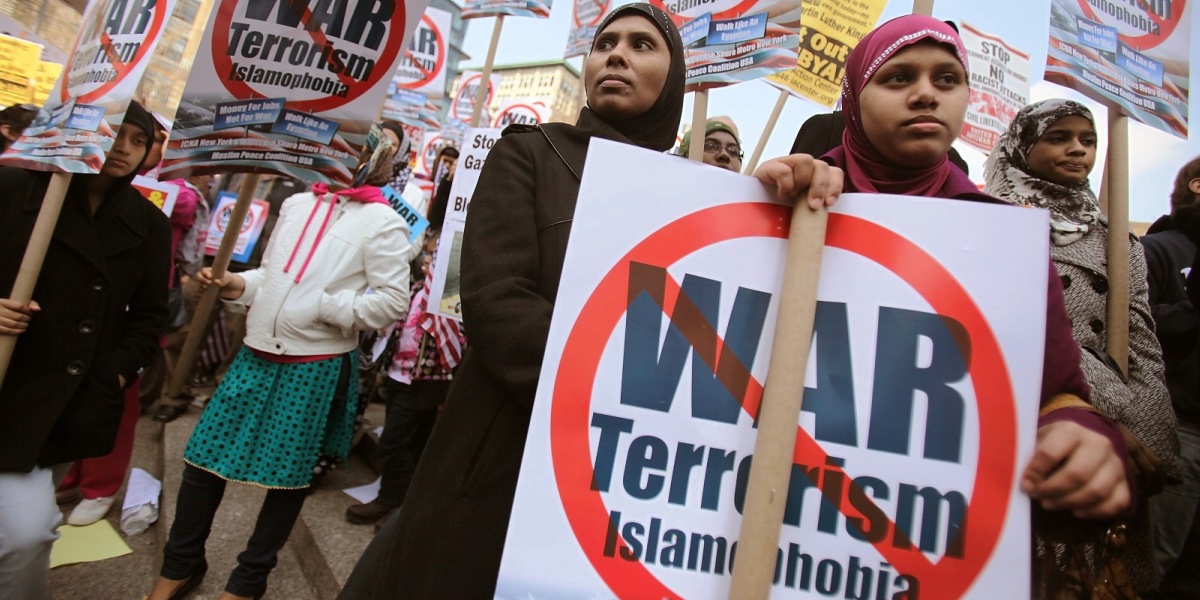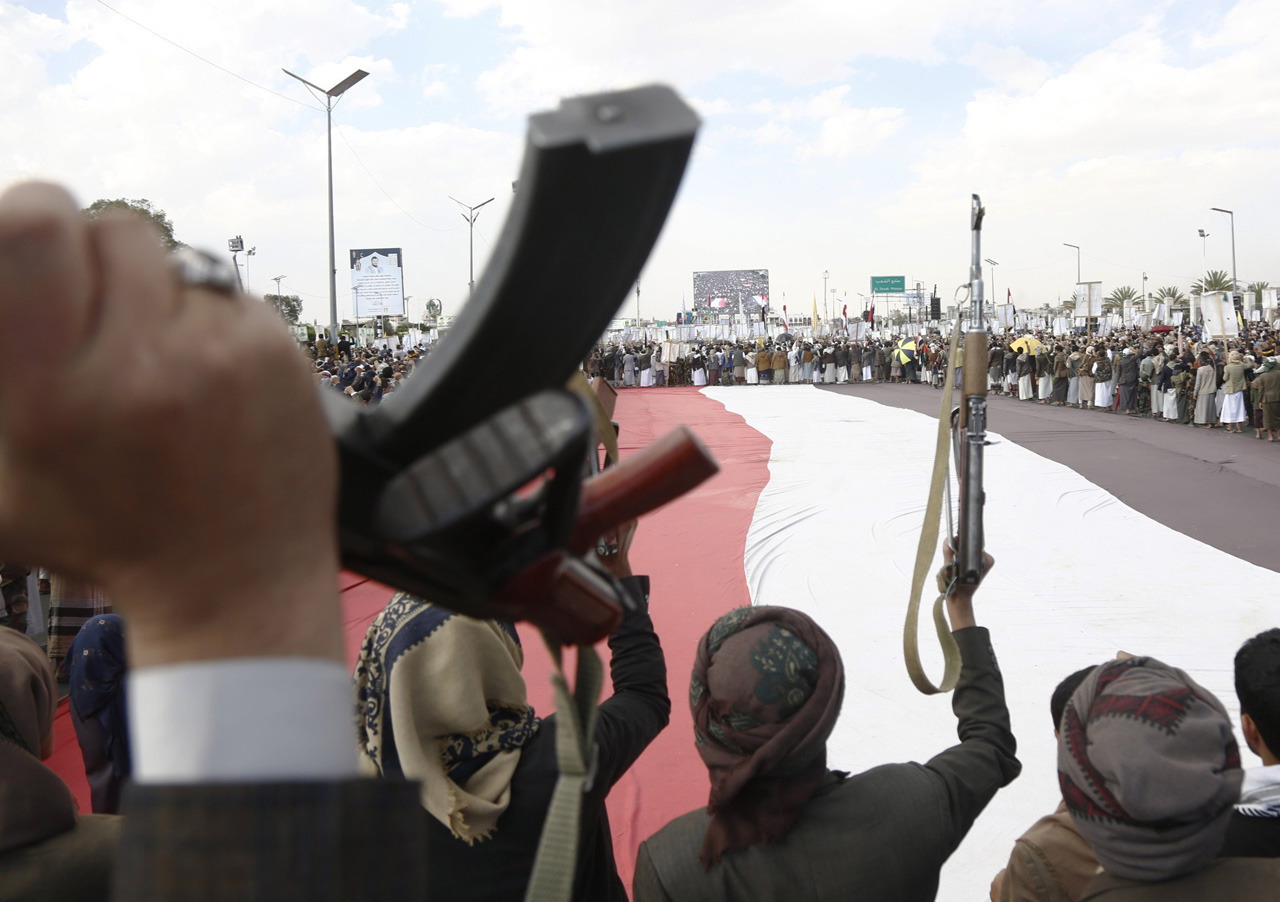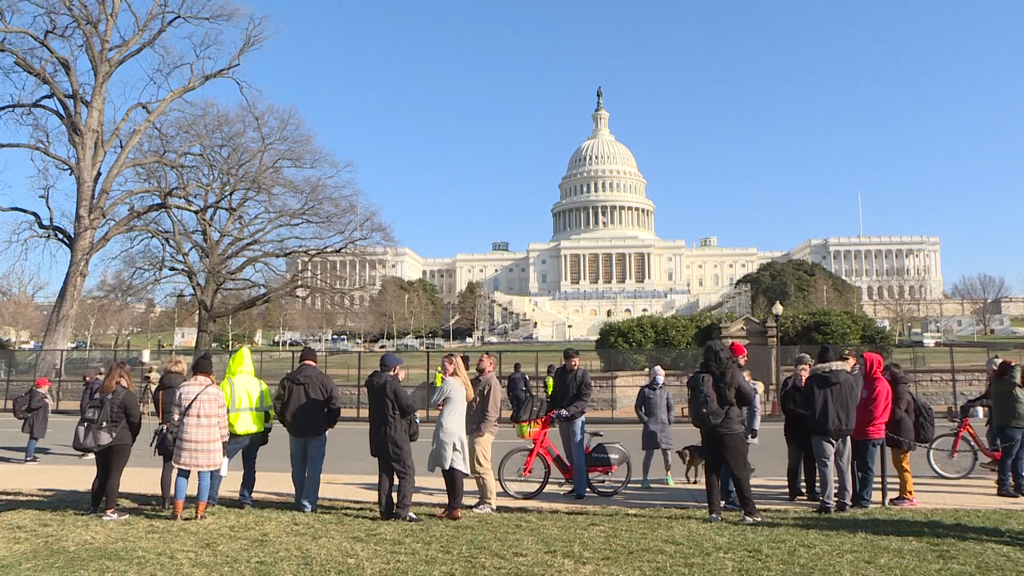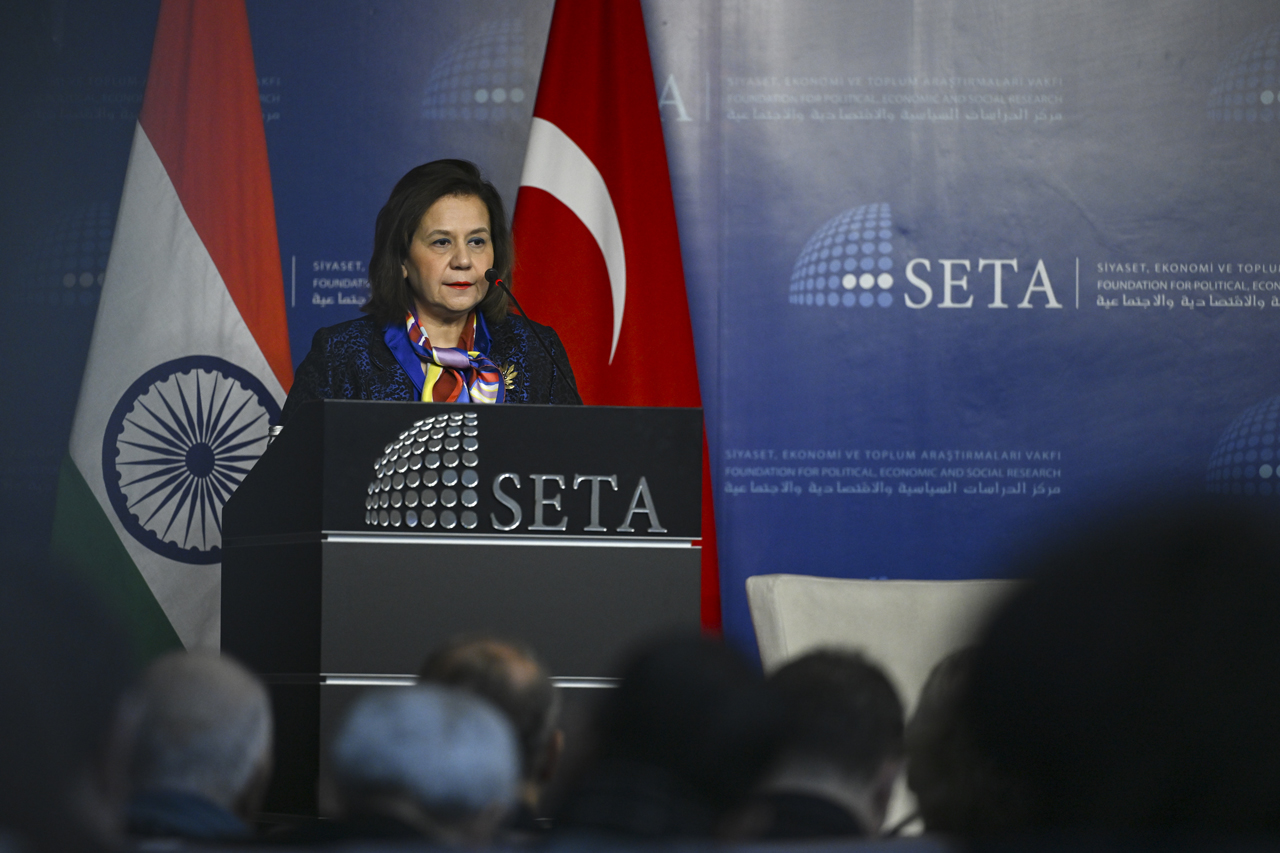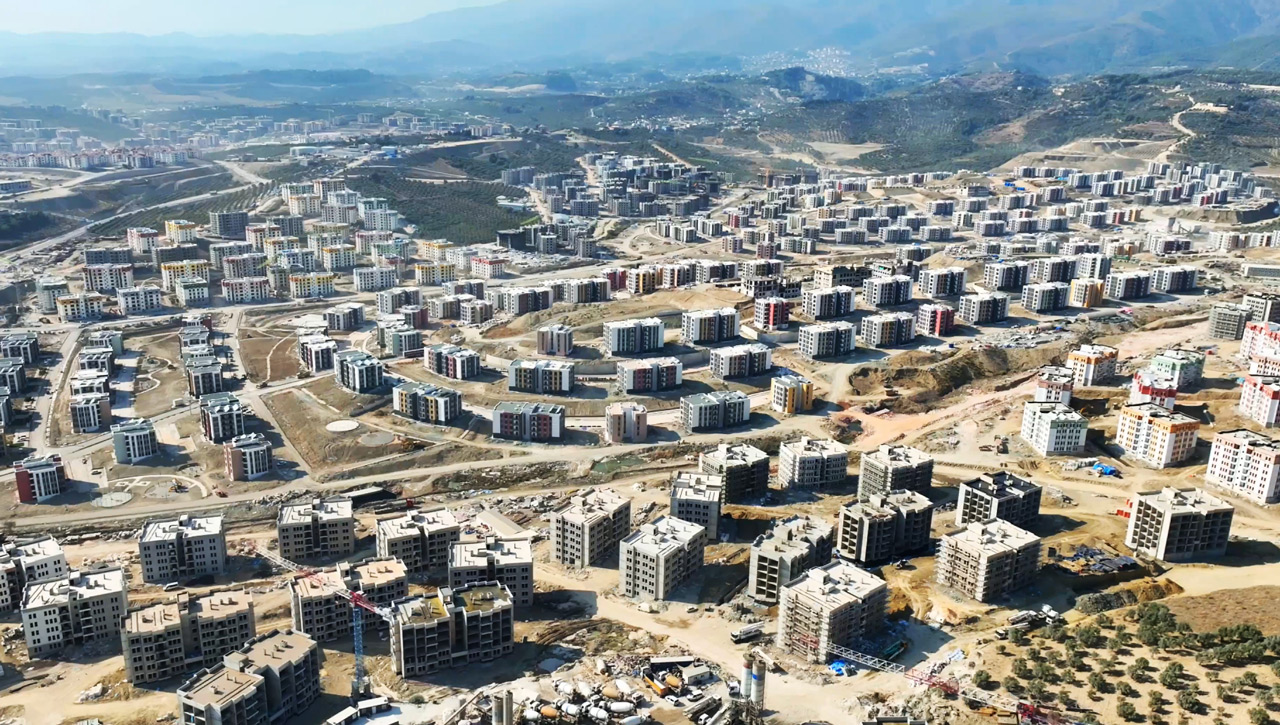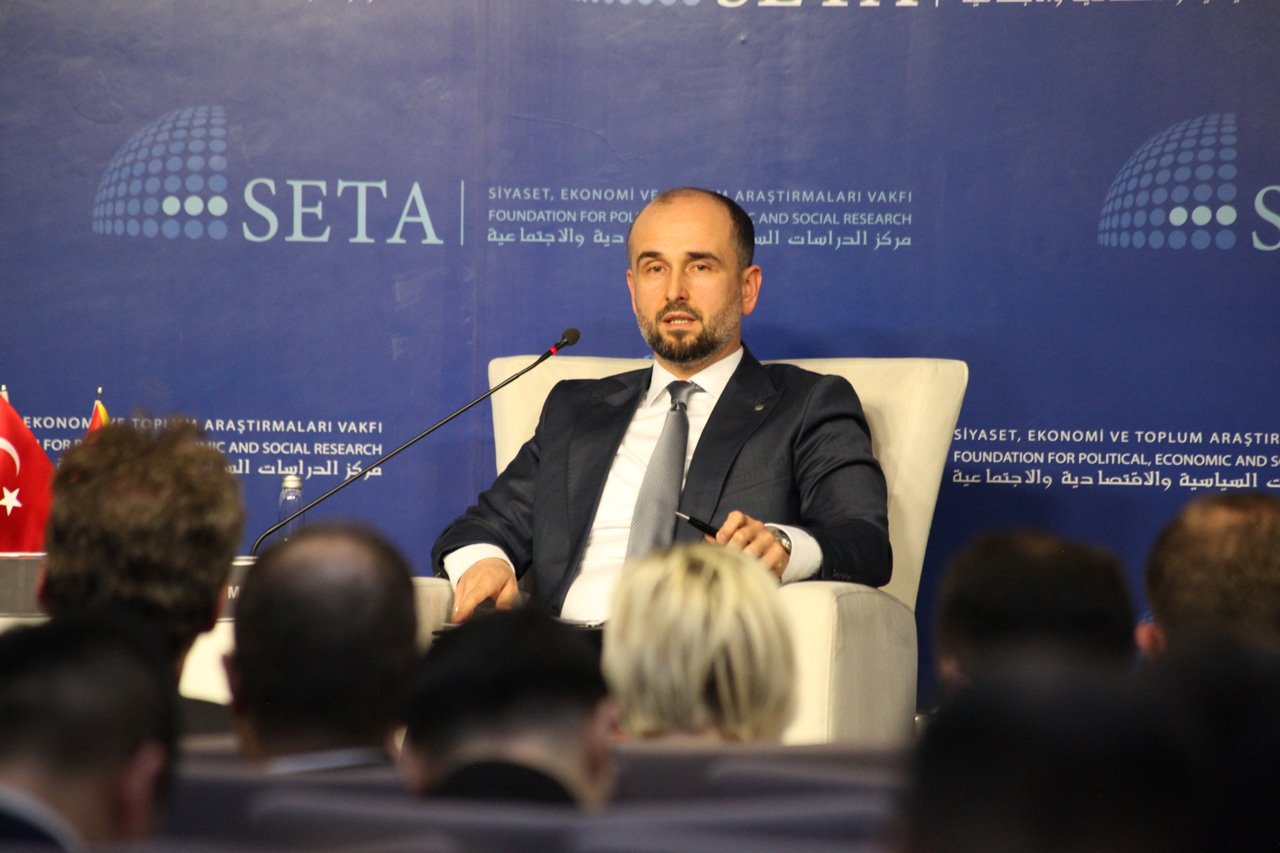Islamophobia or anti-Muslim racism poses a growing threat to the democratic foundations of European constitutions and social peace as well as the coexistence of different cultures throughout Europe. Both civil society actors and states should acknowledge the seriousness of this issue and develop concrete policies to counter Islamophobia.
In fact, there are still people denying the very existence of racism against Muslims. Many state and civil society institutions, from the Fundamental Rights Agency (FRA) to the countless civil society organisations throughout Europe, have done priceless work to prove and establish the opposite. In June 2014, the website for reporting hate crimes to the OSCE Office for Democratic Institutions and Human Rights (ODIHR) went public. In 2014, only five states officially reported on hate crimes against Muslims, whereas civil society reported in 21 countries. Still, for the majority of the 57 member countries of the OSCE, there is no official information available. Furthermore, if one were to assess the quality of these state reports, it becomes apparent that the collected data does not always rely on a comprehensive systematic collection. Furthermor, institutions like the FRA publish only irregular reports on a restricted number of countries while most civil society organisations tackle racism in general and only few focus on Islamophobia in particular - this is the urgent gap our report wishes to fill.
As the leading think tank in Turkey, SETA felt an urgent need to address this problem. The European Islamophobia Report (EIR) is an annual report, which is presented for the first time this year. It currently comprises 25 national reports regarding each state and the tendencies of Islamophobia in each respective country. The current report features the work of 37 extraordinary scholars. In the years to come we will attempt to cover even more countries. This report aims to enable policymakers as well as the public to discuss the issue of Islamophobia with the help of qualitative data. At the same time, several of its unique characteristic features make a difference to the current state of debate on Islamophobia. Studies on Islamophobia have in the past predominantly concentrated on Western Europe. This is especially the case with reports focusing on Islamophobia. The EIR is the first to cover a wide range of Eastern European countries like Serbia, Croatia, Hungary, Lithuania, and Latvia. This will enrich the debate on racism in general and Islamophobia in Europe in particular.
CONTRIBUTION OF THIS REPORT
The national reports in the EIR look at significant incidents and developments in each country during the period under review. The authors look at the employment sector: has there been any discrimination in the job market based on the (assumed) Muslimness of a person? They look at education: has Islamophobic content become part of any curricula, textbooks, or any other education material? The political field in a narrow sense is also a central aspect of the EIR: has Islamophobia played any role in politics - from election campaigns to political programmes and personal statements be it on a regional or national level? Authors also take a close look at a central force where Islamophobia has spread: the media. Which media events have focused on Islam/Muslims in an Islamophobic way? The justice system is also featured in the national reports: are there any laws and regulations that are based on Islamophobic arguments or any laws restricting the rights of Muslims in their religious lifestyle? Cyberspace as a central space for spreading hate crime is also examined: which web pages and initiatives have spread Islamophobic stereotypes? In addition, central figures in the Islamophobia network are discussed: which institutions and persons have, among others, fostered Islamophobic campaigns, stirred up debates or lobbied for laws?
Since the EIR is not content with pointing a finger at the problem, the reports also look at observed civil society and political assessment and initiatives undertaken to counter Islamophobia in the aforementioned fields. This will empower politicians and NGO activists, who want to tackle the issue. Since the EIR is not a purely scholarly work, at the end of every report, authors offer policy recommendations for politics and NGOs. An executive summary at the beginning and a chronology at the end of every report give the reader an overview on the state and the development of Islamophobia in the respective countries.
Since the single reports share broadly the same structure, the EIR offers the possibility to compare Islamophobia in these countries. Despite the fact that the data in specific fields is not available in an identical way for all countries, the report still facilitates an impulse for identifying research gaps.
Studies on Islamophobia have in the past predominantly concentrated on Western Europe. This is especially the case with reports focusing on Islamophobia. The EIR is the first to cover a wide range of Eastern European countries like Serbia, Croatia, Hungary, Lithuania, or Latvia. This will enrich the debate on racism in general and Islamophobia in Europe in specific.
WHAT IS ISLAMOPHOBIA?
Although the term 'Islamophobia' has become widely recognised in the Anglo-Saxon world and has become established in academia as can be seen by the numerous conferences, journals, and research projects dedicated to it, in many European countries, there is still a great amount of opposition to the term. One can understand the opposition expressed by the public not merely as an academic debate, but, in fact, as a sign of the hegemonic power of Islamophobic prejudices. Acknowledging this situation, at the heart of this project lies the following working definition of Islamophobia:
"When talking about Islamophobia, we mean anti-Muslim racism. As Anti-Semitism studies have shown, the etymological components of a word do not necessarily point to its complete meaning, nor to how it is used. Such is also the case with Islamophobia studies. Islamophobia has become a well-known term used in academia as much as in the public sphere. Criticism of Muslims or of the Islamic religion is not necessarily Islamophobic. Islamophobia is about a dominant group of people aiming at seizing, stabilising and widening their power by means of defining a scapegoat – real or invented – and excluding this scapegoat from the resources/rights/definition of a constructed 'we'. Islamophobia operates by constructing a static 'Muslim' identity, which is attributed in negative terms and generalised for all Muslims. At the same time, Islamophobic images are fluid and vary in different contexts as Islamophobia tells us more about the Islamophobe than it tells us about the Muslims/Islam".
CENTRAL FINDINGS
That Islamophobia works without Muslims and tells us more about the anti-Muslim racists than it tells us about Islam and Muslims, can best be seen in the eastern region of Europe. In countries like Hungary, Finland, Lithuania, or Latvia, where only a small number of Muslims live, Islamophobia functions as a successful means to mobilise people. People not only greatly overestimate the country's Muslim population but, although Muslims have not committed any violent acts in most countries in the name of Islam, they are still often deemed violent and are considered to be terrorists.
It could be observed that both attacks in Paris, which happened in 2015, became a discursive event that shaped the debates on Islam and Muslims throughout Europe. Above that, the so-called 'refugee crisis' was a central topic, which many actors linked to the issue of Muslims invading Europe. For example, the leader of the Hungarian Fidesz' parliamentary club Antal Rogán warned of a future 'United European Caliphate', while former Secretary of State László L. Simon urged Hungarians to return to their Christian spirituality and make more babies in order to counter the negative cultural effects of mass migration such as the envisioned 'impending victory of Islamic parties imposing polygamy and destroying the remainder of European culture'. This strong Islamophobic rhetoric is not restricted to the extreme right. In fact, the refugee-migration-Islam-terrorism nexus became the standard argument justifying a number of domestic and international measures. The social democrat Czech President Milos Zeman claimed the influx of refugees into Europe was masterminded by Egypt's Muslim Brotherhood as "an organised invasion" to "gradually control Europe".
In the aftermath of the Paris attacks, the public climate has become more aggressive towards Muslims. In France not only did the number of attacks on mosques and Muslim people rise enormously, but also the security apparatus profited immensely by being highly subsidized. After Paris 13 November, public authorities, notably by raiding mosques, Muslim associations and by targeting certain imams, bolstered the by now largely shared view that Muslims are a security issue in the country. Assaults against Muslims, mosques and Islamophobic discourse more generally skyrocketed both after the Charlie Hebdo and the Bataclan attacks. This had deep implications also on other countries.
Most notably, in Belgium peaks in Islamophobia correlated with events in Paris. But also countries that are further away and that were not related to the Paris attacks were concerned. For instance in Austria and the Czech Republic, the recorded number of harassments on the streets and violations against Muslims has been increasing. The fact that we are able to report that may have only to do with a heightened consciousness on the part of Muslims who seem to have become more active in talking about these discriminations, after the debate on Daesh has become omnipresent. The discourse on Daesh has also helped political parties as well as new social movements to organize. Pegida and its branches as well as the Identitarian movement – a manifestation of the European New Right – are two most famous social movements to be mentioned here.
In case of Croatia, the report supports systematic features of every racist paradigm. While the arrival of Muslim immigrants is portrayed as a threat and politicians speak of people who "bear many children" and "posit a threat to Croatian culture", on the other side, the exact same right-wing politicians favour Bosnian Muslims as a part of the Croatian nation with an Islamic faith and describe them as part of the Croatian cultural heritage. How do we rationalize such a position? The figure of the 'good Muslim', with which some Muslims, who are included in the powerful 'us' are content with, is only the necessary side of a seemingly civilized discourse that hides the racist structure of the generalization of 'the other' that becomes manifest in the Muslim refugee. Here, it is important that Muslim associations do not stand on the side of the powerful, but take a clear stance towards justice and equality.
While some reports argue that Islamophobia still is marginal in education, the labour market and the polity, Islamophobia is on the rise in the media and especially in social networks, as a number of reports from Albania to Greece reveal.
In the context of institutional discrimination, repeated researches have made reference to the manner in which pupils in the Irish education system are exposed to discriminatory enrolment policies, impacting those from minority faith or no-faith backgrounds. Irish Equality legislation allows for educational institutions, primarily those affiliated with a particular faith to refuse entry to those students, who in essence, do not belong to that faith, something particularly problematic in the Irish context as the vast majority of schools remain in the patronage of the Catholic Church. Despite the promise of legislative change in 2015, enrolment policies such as these as well as a lack of national policy in regards to the wearing of the headscarf in school, provides a context wherein Muslim schoolgoers are particularly exposed to institutionalised exclusionary practices. This has to be addressed if the structural underpinnings that facilitate Islamophobia are to be challenged. In Austria, a report initiated by the Ministry of Foreign Affairs, allegedly analysed the spread of extremism in private Muslim kindergartens. Although on a political level, the Viennese governors denied any of the allegations of spreading extremism in Muslim kindergartens, a consequence of the debate was that officials undertook profiling of kindergartens with Muslim personnel. Kindergarten personnel said they were interrogated by officials regarding whether children would be taught to pray, whether they were taught the Koran, which language they spoke, if they would celebrate Santa Claus and Christmas and told that they had to because this would be part of Austrian tradition. In fact and to the contrary, the educational plan (66 pages) of the Viennese government does not mention anything like 'Austrian values' or 'tradition' in any single sentence.
Following the recommendations of the Council of Europe for EU member states and neighbouring states on launching Countering Violent Extremism (CVE) projects, many Muslims felt they are subjects of special measures, and thus additionally labelled and stigmatized. This happens in Bosnia and Hercegovina, where numerous extremist and violent groups inspired by Svetosavlje (Orthodox ideology) and Croat and Serb nationalism that are active in B&H have not been included in such strategies or security measures and the only focus is on Muslims.
In the United Kingdom, the Counter-Terrorism and Security Act 2015 was implemented. The author criticizes that under the CTS Act public servants, be they teachers, lecturers, nursery school staff, doctors and so on are under a duty to report anyone they believe to be an extremist. The issue is further compounded by the fact that no concrete definition of what 'extremism' might be is proffered, leaving such referrals open to the subjective vagaries of those making the references. Similar initiatives that demanded a reporting of 'extremist' people – although not legitimized by a law – happened in other countries such as Austria. We fear that these tendencies weaken the rule of law as a central element of democratic states.
A central element that helps in creating this atmosphere is the media. Media outlets all over Europe all too often engage in an 'us vs. them' presentation of Muslim communities that incorporates an alleged incompatibility between 'Islam' and European values. It appears that Western values are associated mostly with the Christian faith, while Eastern ones are connected to the Muslim faith. This binary of East vs. West, translated into Islam vs. Christianity, or 'enlightenment' and 'progressiveness' vs. 'backward Islam' strengthens identity constructions and narratives of a homogenized 'us' vs. 'them' and in consequence threatens an inclusive understanding of diverse and multicultural European societies. Not only journalists and bloggers but also web moderators and ordinary people have used the media and cyber-space as a vehicle to spread fear and hatred towards Muslims. Even in countries like Lithuania, where Islamophobia is according to our authors, is nearly absent, the internet seems to play a pivotal role in the emergence and dissemination of Islamophobic attitudes. The central role of the internet not only in the dissemination of prejudices but also in the formation of Islamophobic attitudes can be seen in the Czech Republic. Here, the formation of the 'Block Against Islam' emerged out of groups active in social media and active in local demonstrations against mosques.
Coming back to a central topic related to terrorism, it is also important not to forget that Islamophobia may have an impact on some individuals leading them to more extremist views and terorist acts such as Anders Breivik. In contrast, Muslims should be supported in counteracting Islamophobia and thus have to be seen as allies in the fight not only against extremism but especially in the fight against racism in Europe. Positive examples of empowerment are the Dutch initiative 'Meld Islamofobie!' or the Austrian 'Dokustelle Muslime', where people can register anti-Muslim hate crime
POLICY RECOMMENDATIONS
Islamophobia poses a great risk to the democratic foundations of European constitutions and social peace as well as the coexistence of different cultures throughout Europe. Both civil society actors and states should acknowledge the seriousness of this issue and develop concrete policies to counter Islamophobia. Here we have summarised some of the important policy recommendations from the national reports.
- Islamophobia should be acknowledged as a crime and should be included in all national statistics throughout Europe.
- Hate crime legislations should be adopted in all European countries that acknowledge one's religious identity as being a basis upon which one may be targeted.
- In order to collect data about Islamophobic incidents, victims registers must be introduced in all European states.
- In order to help the victims of Islamophobic attacks, counseling services for victims must be established in all European states.
- Journalists, lawyers, Police (security officials) and legal authorities in all European countries should be educated by qualified personnel in regards to Islamophobia.
- Muslim civil society has to be empowered with information to combat Islamophobia, especially in terms of awareness of the illegality of hate crimes.
- Educational institutions and stakeholders have to work towards creating an alternative narrative of Muslims in the respective countries which will work to dispel the widely accepted negative image of Islam.
- Civil society actors must also push for legislative change in the context of school enrolment policies so that all members of the respective societies are treated fairly when accessing education.
- Governments must draft a policy that ensures that the rights of religious minorities to manifest their faith are respected in education and the workplace; this must not be left to the preferences of individual boards of management or principals.
- Discrimination on the job market towards Muslims, and especially Muslims who wear veils, is a widespread phenomenon. This should be recognised and seriously addressed by better legal regulations and creating awareness about the issue.
- Civil society actors must engage with media actors/outlets in terms of the publication and broadcasting of standards in order to reduce the use of racialising discourses vis-à-vis Muslims and other minority communities.
- The civil rights violations experienced by women wearing headscarves should be addressed by lawmakers and politicians.
- An independent media watchdog should be established in order to monitor media reports in real time in all respective countries.
[Yeni Safak, April 15, 2016]
